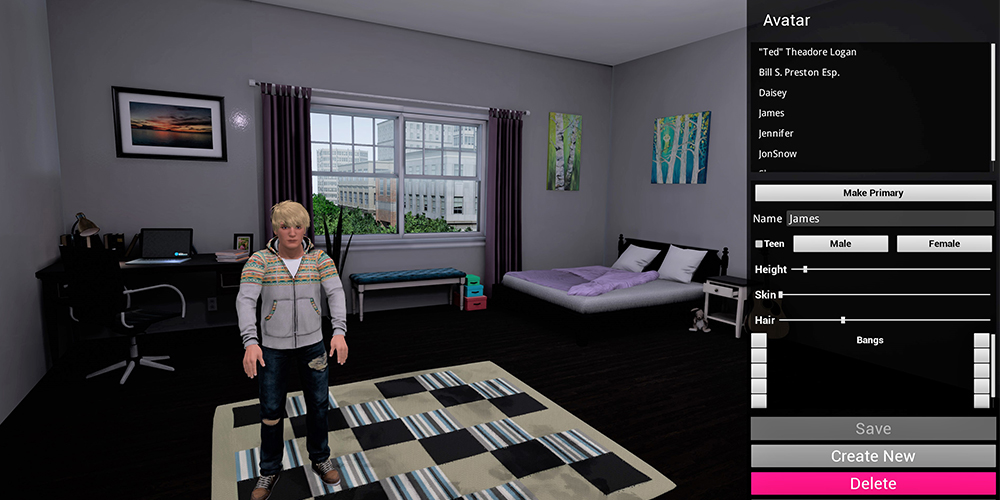Partnership to Help Adults with Autism Reach Career Goals
 A screen shot from Charisma, the Center for BrainHealth’s virtual learning program.
A screen shot from Charisma, the Center for BrainHealth’s virtual learning program.
UTD’s Center for BrainHealth and the nonPareil Institute have joined forces to help adults on the autism spectrum become job-ready and build stronger social relationships.
The partnership kicked off earlier this year as nonPareil, a nonprofit organization dedicated to building better futures for adults with autism, began work to enhance Charisma, the Center for BrainHealth’s virtual learning program. Charisma, which has been featured on The Today Show and CBS News, is a video-game-like environment that helps those with autism spectrum disorder and other social challenges.
Crew members from nonPareil have started technical artwork on a movie theater as an additional scenario to practice social skills. Additional virtual scenarios will include classrooms and offices to practice job interview and skills training.
Dr. Lara Ashmore, director of emerging technologies and digital programs at the Center for BrainHealth, is excited to be working with nonPareil on the project.
“This partnership will benefit our adolescent Charisma participants as well as adults,” she said. “Having a more robust virtual environment will allow our clinicians to create even more immersive experiences to help people of all ages with social challenges feel more confident in the real world.”
The collaboration will provide nonPareil crew members with game development experience and access to a training program in a safe and familiar environment — the Center for BrainHealth’s virtual one.
“Our virtual world already has a café, school and a gymnasium,” said Tandra Allen, head of virtual programs at the Center for BrainHealth who is a clinician that leads social strategy practice sessions in Charisma. “We have been wanting a movie theater for a long time. We hope that through this partnership, nonPareil crew members will feel more socially confident and will have solid experience to add to their resumes.”
“When young adults with autism turn 18, many of the resources afforded them as youth disappear,” said Daniel Faso, director of program engagement at the nonPareil Institute. “NonPareil was founded on the idea that providing adults with autism technical and professional skills opens up the opportunity to lead more independent lives.”



